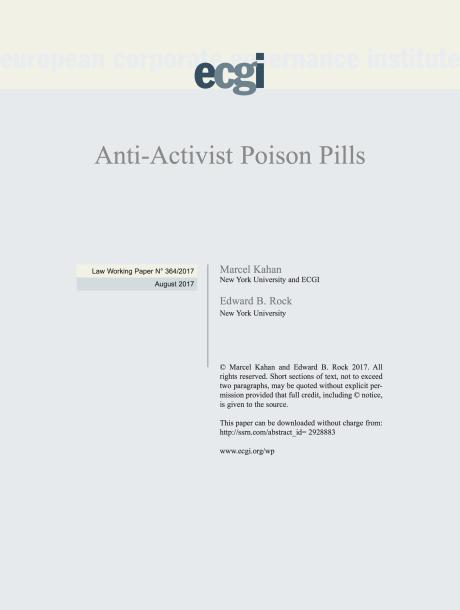
Anti-Activist Poison Pills
Abstract
Hedge funds have become active in corporate governance. They push for changes in strategy and the adoption of specific business plans. Their tactics include buying shares, conducting public campaigns, lobbying managers and other shareholders, seeking representation on the board of directors, and sometimes running a proxy contest. In response, boards have adopted a variety of “defensive measures” including deploying “poison pill” shareholder rights plans against activists.
This article provides a comprehensive policy and doctrinal analysis of the use of poison pills again activists in corporate governance contests (as distinguished from corporate control contests). We argue that, because of the significance of the specific design features – features that have so far received little judicial attention – it is increasingly important to scrutinize pills to assure that they are targeted to address legitimate objectives. Various design features of a pill interact and features that may be harmless in pills designed to fend off a hostile takeover are unjustifiable in pills employed against an activist hedge fund. While a board, acting in good faith, should be permitted to use a pill to preserve and perfect the shareholder decision-making process, it should, in doing so, act as a “neutral election board.”









